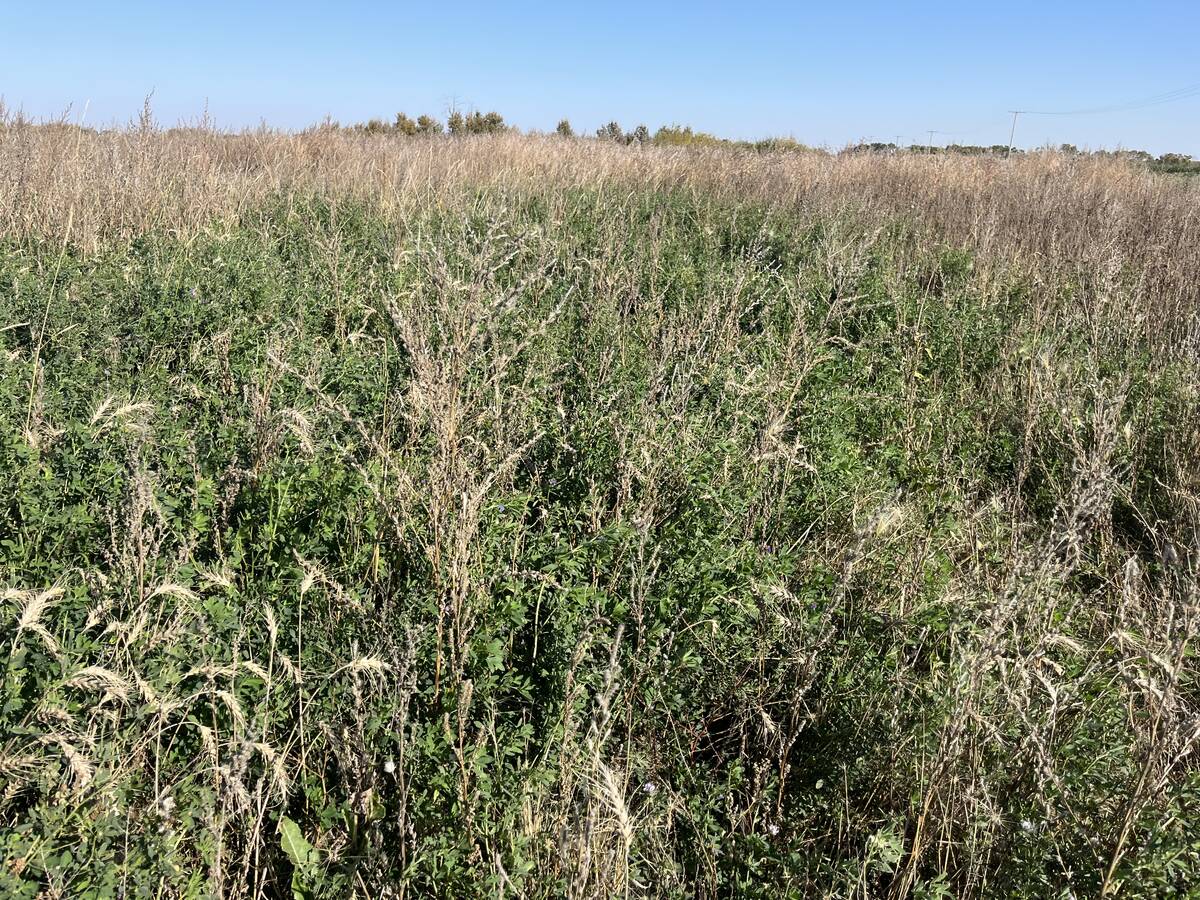American claims of missing health documents and ear tags on Canadian cattle bound for the United States appear to be unfounded.
John Masswohl of the Canadian Cattlemen’s Association said the claims, reported in U.S. media last week, were taken out of context to discredit the U.S. Department of Agriculture and its efforts to implement a minimal risk rule to allow cattle older than 30 months and beef from cattle of all ages to enter the country.
A newspaper article in the Chicago Tribune said documents obtained by the Cattle Producers of Washington suggested problems with documentation and identification tags. The organization is a state affiliate of R-CALF.
Read Also

Dormant seeding forages frees up farmer time and gets ahead of weeds
Dormant seeding isn’t common practice and can appear daunting, but there are some techniques to give Manitoba farmers an edge
While the CCA has not seen the documents, Masswohl said the association believes any problems discovered were caused by human errors: either numbers were incorrectly recorded or paperwork was not submitted from American feedlots.
“The numbers that this article referred to with hundreds of cases every week of cattle that weren’t following the rules, I just don’t buy that,” Masswohl said.
“It sounds to me like a small number of cases where somebody erred.”
A second episode involving a South Dakota rancher and the meat packer Swift and Co. prompted Jan Van Dyke of Wessington Springs, S.D., to claim he bought Canadian cattle without ear tags.
The unidentified animals turned out to be American cattle accidentally commingled at the plant.
Under the United States’ import rules, no Canadian cattle may enter the country without permanent identification and veterinary certification. The Canadian Food Inspection Agency clears exports.
“The CFIA has health regulations that state they have to have tags to get across the border,” said Julie Stitt, manager of the Canadian Cattle Identification Agency.
Most violations involve U.S. feedlots failing to send notices to the state veterinarian when cows go to slaughter, she added.
These incidents appear to be part of an R-CALF campaign opposing the minimum risk rule, but those efforts have caused internal squabbles within the organization, which recently voted its president, Chuck Kiker, off its board.
According to Feb. 8 board minutes published on R-CALF’s website, as well as a News release
news on the Cattle Producers of Washington site, the board recently voted to remove Kiker in a narrow decision and replace him with Missouri veterinarian Max Thornsberry.
The eruption occurred after chief executive officer Bill Bullard wrote a letter to U.S. agriculture secretary Mike Johanns criticizing the minimal risk rule. Kiker followed up with a letter to Johanns rescinding the first letter because he said the full board had not approved it.
The board minutes documented that an angry exchange between the two men occurred and a vote was held that went against Kiker.
The Washington website said R-CALF co-founder Leo McDonnell and some committee heads also resigned from the board.
However, McDonnell presented a paper to a U.S. Senate field hearing in Bismarck, North Dakota, on Feb. 21 asking Congress to stop the rule from proceeding.
The minutes also revealed R-CALF’s intentions to challenge the rule in court, with plans to probably file a motion in Aberdeen, S.D.
The motion would be filed along with R-CALF’s state affiliate in South Dakota.
A legal firm has been retained and plans set in motion to raise $50,000 to cover initial legal fees.















